Posted on 9/26/2025

Older hybrid vehicles are known for their reliability and fuel efficiency, but as they age, many begin to experience issues related to the evaporative emissions system. These problems often show up as check engine lights, trouble codes, or a failed smog inspection. While the symptoms might seem minor, the root cause is often a leak or failure in a system designed to trap and control fuel vapors. The challenge with evap system problems in hybrids is that they can be harder to detect, and the repairs are not always straightforward. What the Evaporative Emissions System Does Every modern car, including hybrids, is equipped with an evaporative emissions system. Its purpose is to prevent gasoline vapors from escaping into the atmosphere. Instead of letting fuel vapors vent freely from the tank, the system captures them and stores them in a charcoal canister. When conditions are right, those vapors are sent back into the engine to be burned during normal operation. This ... read more
Posted on 8/29/2025

Acuras are known for their blend of luxury and reliability, but like any modern vehicle, they rely heavily on electrical systems. From starting the engine to powering infotainment, climate control, and advanced driver assistance features, electricity plays a vital role in daily driving. When something goes wrong, it can cause anything from minor inconveniences to major breakdowns. At The Model Garage in Berkeley, CA, electrical repairs are a regular part of keeping Acuras running smoothly. Battery and Charging Problems One of the most common electrical issues Acura owners face is a failing battery or charging system. Over time, batteries lose their ability to hold a charge, especially if short trips are common or the vehicle sits unused for long periods. In some cases, the alternator (the part responsible for recharging the battery) can also fail. Symptoms of these problems include dim headlights, slow cranking when starting the car, and dashboard w ... read more
Posted on 7/29/2025
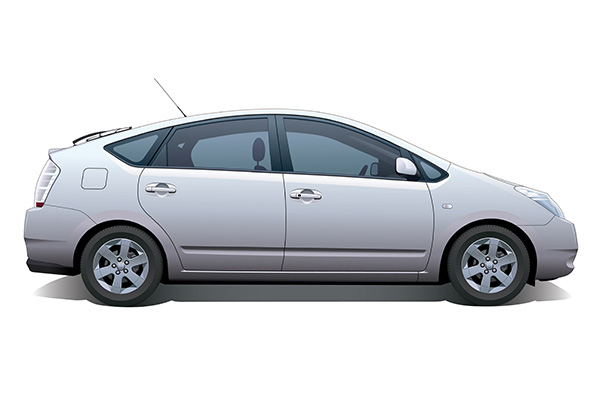
One of the main reasons drivers choose a Toyota Prius is its impressive fuel economy. Designed with hybrid technology to minimize fuel use, the Prius often delivers exceptional mileage compared to traditional gas-powered vehicles. But over time, some Prius owners notice a dip in MPG that can be frustrating—and sometimes confusing. If your Prius isn’t performing as efficiently as it used to, several factors could be at play. Learning what causes fuel economy to drop can help you take the right steps to restore efficiency and keep your hybrid system running smoothly. Changes in Driving Habits or Environment Not every drop in fuel efficiency points to a mechanical problem. Sometimes, a change in your daily driving routine is all it takes to impact your MPG. Short trips where the engine doesn’t warm up fully, increased idling, or more stop-and-go traffic can all reduce fuel economy. Cold weather also plays a role, as the hybrid system may run the gaso ... read more
Posted on 6/27/2025
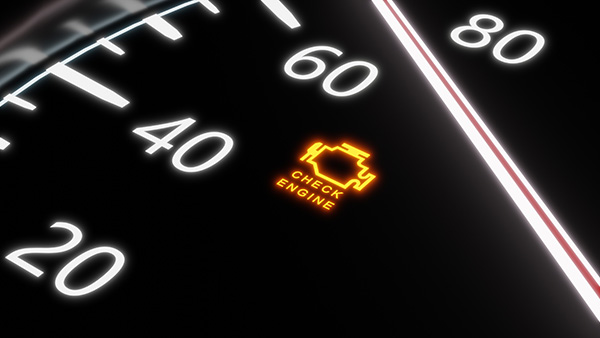
Seeing the check engine light come on in your Subaru can stir up a mix of worry and confusion. For many drivers, it’s a signal that something could be seriously wrong, but it’s not always easy to tell what’s going on under the hood. Subaru vehicles, known for their reliability and all-wheel-drive performance, are not immune to occasional engine issues. Understanding what triggers this warning can help you take the right steps and avoid further damage to your engine or emissions system. What the Check Engine Light Actually Means The check engine light is part of your Subaru’s onboard diagnostic system (OBD-II). When it lights up, the computer has detected something out of the ordinary. This might be a minor issue, such as a loose gas cap, or something more serious, like a misfiring cylinder or a failing catalytic converter. Some check engi ... read more
Posted on 5/30/2025
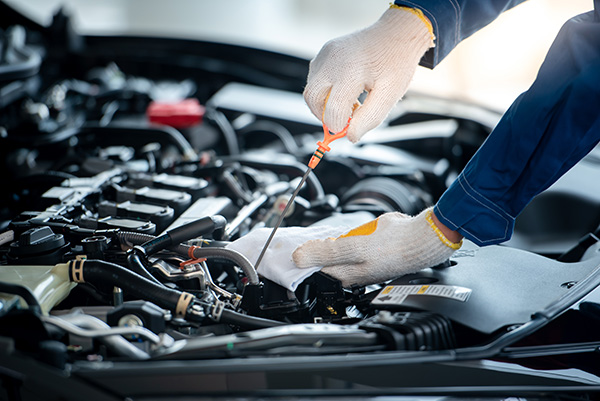
Summer is the road trip season. Whether you're heading to the coast or the mountains or just planning a few weekend getaways, your car will be dealing with heat, long drives, and heavy loads. Before you pack the trunk and hit the highway, it’s important to make sure your vehicle is ready for the demands of summer travel. Skipping a summer inspection can leave you stranded in the heat, stuck on the side of the road, or facing expensive repairs that could have been avoided. Here are five key reasons to schedule a summer checkup before your next trip. 1. High Temperatures Strain Your Cooling System Your engine works hard year-round, but the summer heat pushes it even harder. The cooling system must manage the extra heat to keep everything running smoothly. If your radiator, water pump, coolant level, or hoses aren’t up to the task, you could be dealing with overheating before you’re even halfway to your destination. During a summer inspection at ... read more
Posted on 4/28/2025
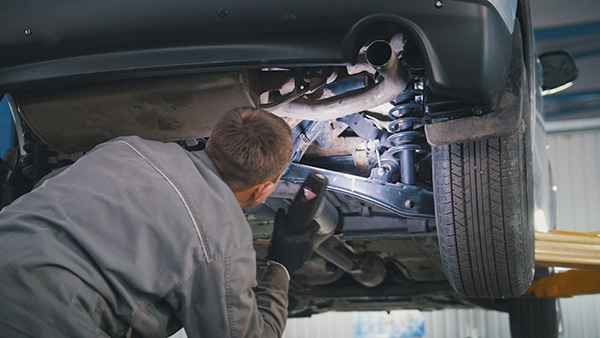
You count on your car’s suspension to keep the ride stable, comfortable, and under control—but as parts like shocks, struts, and bushings wear out over time, small issues can start to creep in. At first, you might not notice much. But if suspension problems are left alone, they can start to affect your steering, braking, and overall safety in ways you don’t want to ignore. Let’s take a closer look at six signs your suspension might be wearing out—and why catching them early can save you from bigger, more expensive repairs later. 1. A Rougher Ride Than Usual One of the first signs of suspension trouble is a noticeable change in ride quality. If every bump or dip in the road seems exaggerated, or if your car feels bouncy or unsettled even on smooth pavement, your shocks or struts may no longer be absorbing impacts properly. These components are designed to control the movement of your wheels and keep your tires in contact with the road. W ... read more
Posted on 3/28/2025
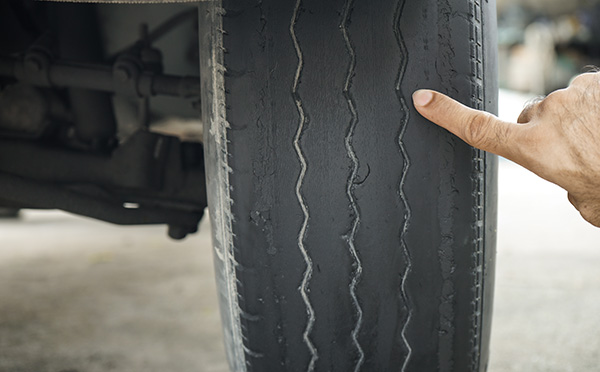
Hearing a deep humming or droning noise that grows louder as you pick up speed can be both distracting and concerning. It’s a sound many drivers mistake for wind noise or engine trouble, but more often than not, it’s coming from the tires. That low whirring is often a sign of uneven tread wear, misalignment, or internal tire issues. Addressing it on time improves your ride quality and can prevent bigger problems and costly repairs later on. What could your tires be trying to tell you? The Sound of Uneven Tire Wear The most common reason tires start sounding weird is irregular tread wear. If parts of the tire are wearing unevenly—whether from alignment issues, suspension problems, or improper inflation—they’ll develop a pattern that causes the tire to make rhythmic noise as it rotates. This often shows up as “cupping” or “feathering,” where the tread surface forms high and low spots. As the tire spins, those incon ... read more
Posted on 2/28/2025

Honda has built a reputation for producing some of the most reliable and long-lasting vehicles on the market. Whether it’s a fuel-efficient sedan like the Civic, a family-friendly SUV like the CR-V, or a rugged truck like the Ridgeline, Honda owners consistently praise their vehicles for longevity, low maintenance costs, and solid performance. But what exactly makes Honda cars and SUVs so dependable? Let’s take a closer look. Proven Engine and Transmission Reliability One of the main reasons Honda vehicles have such impressive longevity is their meticulously engineered engines and transmissions. Honda’s four-cylinder engines, including the K-series and Earth Dreams technology, are built for durability and efficiency. With proper maintenance, many of these engines easily surpass 200,000 miles, and some owners report their Hondas still running strong past 300,000 miles. Honda’s automatic and Continuously Variable Transmissions (CVTs) have also ... read more
Posted on 1/31/2025
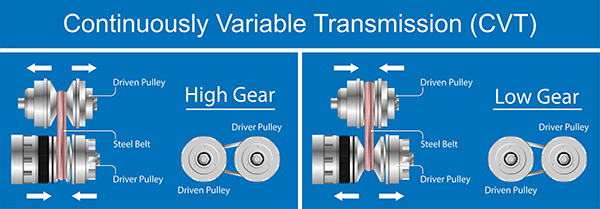
When it comes to automatic transmissions, most drivers don’t think about clutches. After all, clutches are usually associated with manual transmissions, where the driver manually engages and disengages gears. But did you know that both continuously variable transmissions (CVTs) and traditional automatic transmissions use clutches in different ways? How Traditional Automatic Transmissions Use Clutches Traditional automatic transmissions operate using a combination of planetary gear sets, hydraulic systems, and a torque converter. Unlike a manual transmission, which relies on a single clutch to engage and disengage gears, an automatic transmission has multiple clutch packs inside. These clutches work together to engage and disengage different gears based on the vehicle’s speed and load. When you accelerate, hydraulic pressure activates specific clutch packs, allowing the transmission to shift gears automatically. This process ensures a seamless driving exp ... read more